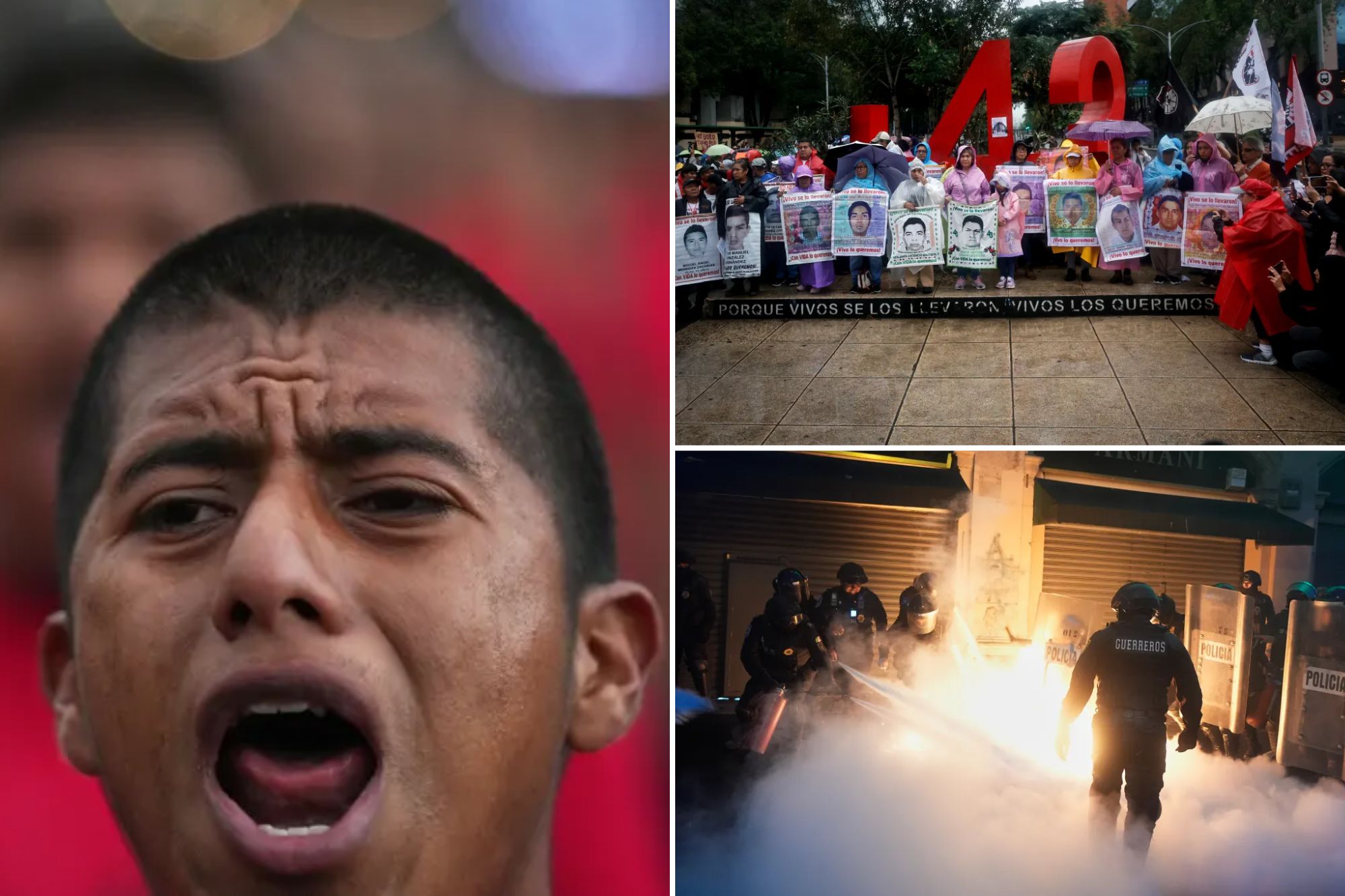On September 26, 2023, families of the 43 students who disappeared in Mexico 11 years ago held a large protest in Mexico City, demanding justice and accountability. The students from the Ayotzinapa Rural Teachers’ College vanished while traveling to a demonstration, an event that has since become emblematic of corruption and impunity in Mexico.
Background of the Disappearance
The students were reportedly abducted in the town of Iguala, Guerrero, while en route to a protest in the capital. According to authorities, they were targeted by local police in collusion with a criminal cartel linked to government officials. This tragic event has deeply shaken public trust in the authorities, exacerbated by revelations of a subsequent government cover-up.
Despite numerous arrests, including former Attorney General Jesús Murillo Karam and various police and military officers, no one has been convicted in connection with the case. The ongoing lack of accountability has made the case a symbol of the broader issues of corruption and violence in Mexico, where over 133,000 people are reported missing.
Annual Protests and Calls for Justice
As families gathered in the streets of Mexico City, chants of “truth and justice” echoed through the crowds, reflecting their enduring grief and frustration. Hilda Hernández, mother of one of the missing students, expressed the families’ relentless pursuit of answers: “After 11 years, the demand remains the same: their whereabouts; the truth, however painful it may be; and justice.”
Protests have been a regular occurrence since the students’ disappearance, with the latest gathering marking a significant anniversary. Demonstrations often escalate, as seen in a recent protest outside a military base that resulted in a truck being rammed through the gates and set on fire. Families are particularly frustrated by the military’s refusal to release documents that could be crucial to the investigation.
In response to the ongoing unrest, Mexican President Claudia Sheinbaum reiterated her commitment to uncovering the truth. Since the case was declared a “state crime” in 2022, authorities have acknowledged that police may have acted in collusion with organized crime. Yet, many families feel their pleas for justice are falling on deaf ears.
Although the government claims investigations are ongoing, many families express skepticism. The sentiment was echoed by Clemente Rodríguez, father of Christian Rodríguez, who lamented, “Governments come and governments go, but the case remains unresolved.”
As of now, more than a hundred individuals have been arrested in connection with the case, but many of these arrests have not resulted in convictions. Some suspects have been released due to procedural issues. Key figures, including the case’s first chief investigator Tomás Zerón, remain at large, with reports suggesting he is hiding in Israel. Families continue to press for his extradition, along with others believed to be in the United States.
The disappearance of these 43 students continues to resonate across Mexico, serving as a poignant reminder of the country’s struggles with crime and government complicity. As families continue their fight for justice, the demand for accountability and transparency remains a pressing issue in Mexican society.





































































